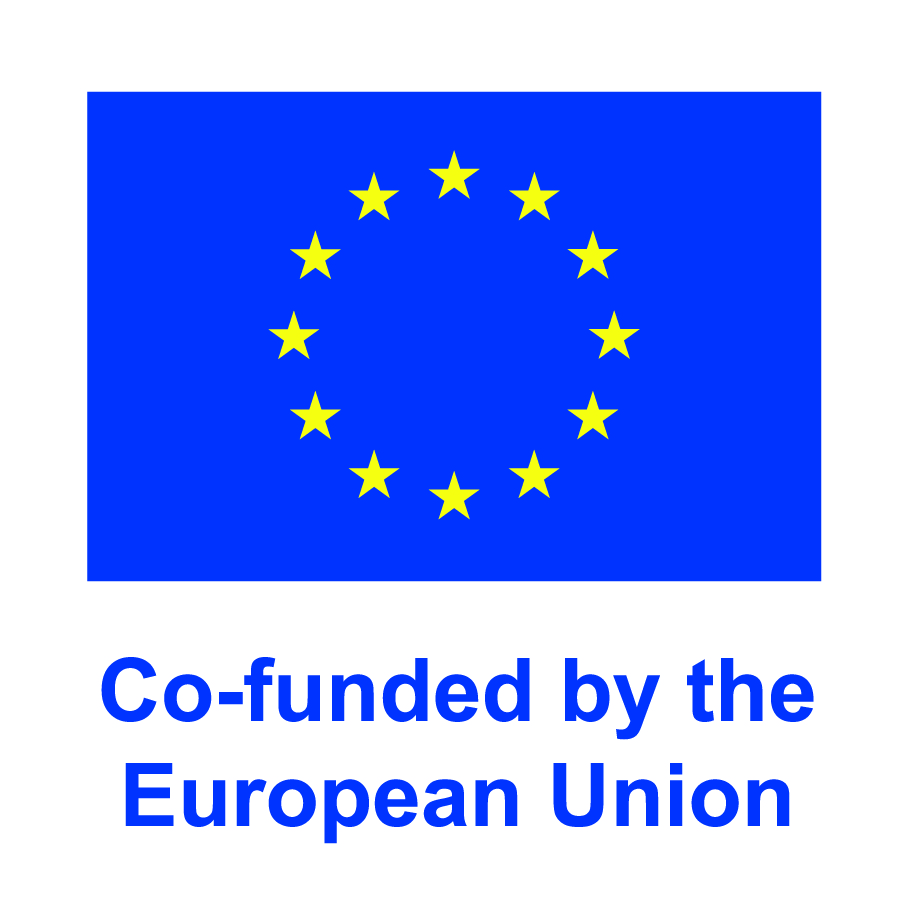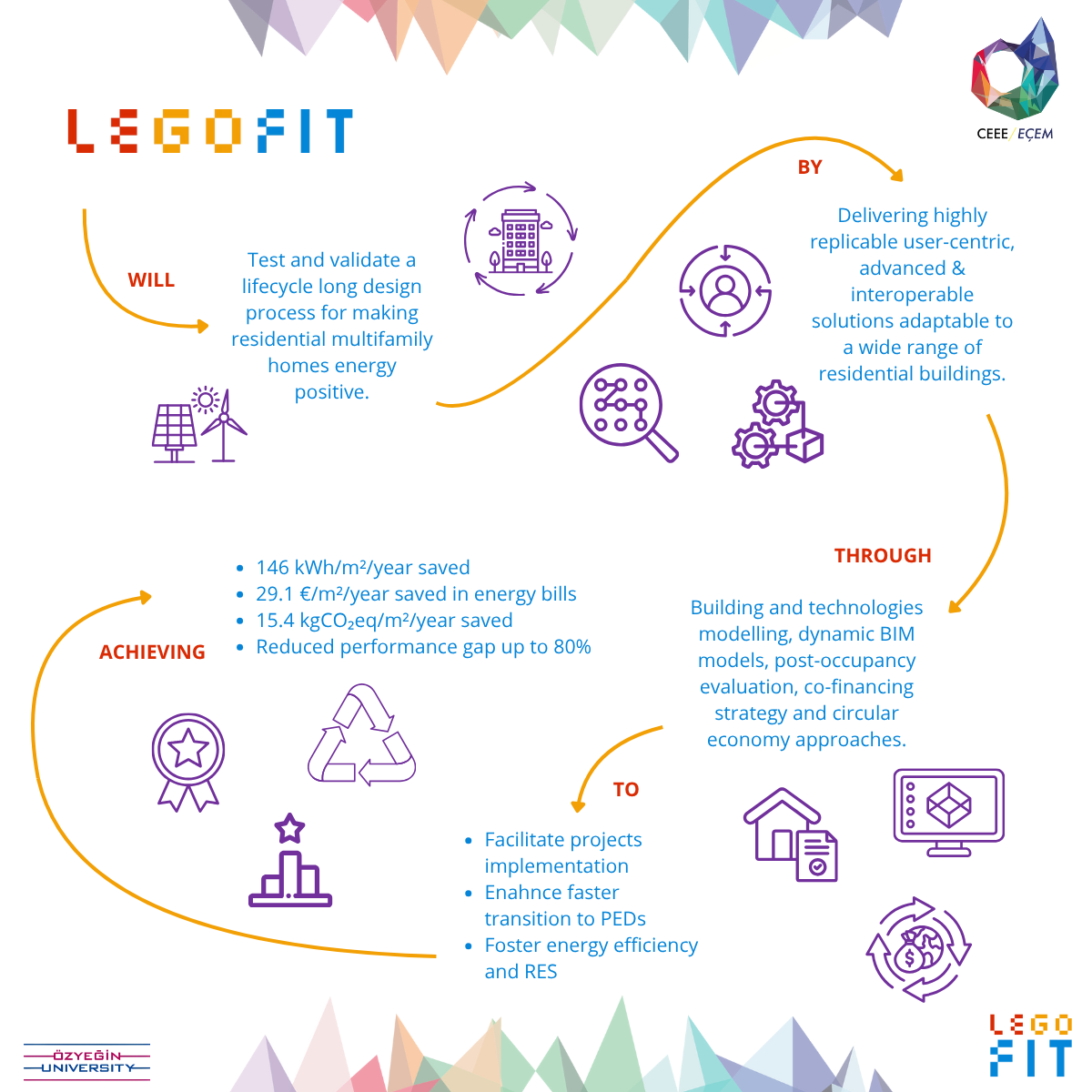Project Start-End Date: 04/2023 – ongoing
Planned Duration: 4 years
Funded by: EU Horizon 2020
Project Budget: ∽€6,000,000.00 Total EU Contribution, OzU CEEE Budget: €700,922.50
Implementation Building: Dormitory 6, Özyeğin University, Istanbul
Project Team: M. Pınar Mengüç, Gökçe Tomrukçu, Cem Keskin, Dilek Saygı
Coordinator: Demir Enerji (TR)
Project Partners: Spain, Italy, Belgium, France, Sweden, Hungary, Serbia, Luxembourg, Ireland
Website: www.legofit.eu


LEGOFIT is a Horizon Europe-funded project that aims to develop, implement, and validate advanced, dynamic, and integrative approaches to create Energy Positive Homes (EPH). The initiative focuses on scalable and replicable smart solutions for both construction and renovation through:
The LEGOFIT pilot sites ensure both diversity—covering different geographic areas with varying market maturity, social contexts, financial resources, building types, and stages of building life—and scalability, by selecting buildings representative of their local context. Together, these factors maximize the potential for applying the LEGOFIT process across the EU.
LEGOFIT pilot sites are:
Ozyegin University hosts the Turkish demo site, focusing on energy implementations in the new Dormitory 6, B Block, built in 2017. The building consists of five interconnected structures, including dormitories, a social center, accommodation facilities, and a guest house.
The proposed solutions for the Turkey demo site at Dormitory 6, B Block, aim to reduce the building’s energy consumption, lower its carbon footprint, and create user-interactive programs that promote sustainable lifestyles. These approaches make the project environmentally friendly and efficient while contributing to long-term sustainability goals.
LEGOFIT, funded by the European Union’s Horizon Europe research and innovation programme, brings together 18 partners across Europe to develop, test, and validate a flexible, integrated approach for achieving energy-positive multi-family residential buildings. Coordinated by Demir Enerji, the 48-month project focuses on enhancing energy performance throughout the entire building lifecycle.
By adopting a holistic design strategy—leveraging digitized building data, a centralized BIM-based repository, and seamless interoperability with diverse services—LEGOFIT aims to deliver sustainable, energy-positive, and comfortable living solutions for both new and existing buildings in the EU.

Ozyegin University
Academic Building 4, B5-520,
Nisantepe, Orman Street, 34794 Cekmekoy
Istanbul / TURKEY
Ozyegin University
Academic Building 4, B5-520,
Nisantepe, Orman Street, 34794 Cekmekoy
Istanbul / TURKEY
+90 (216) 564 91 34
+90 (216) 564 91 34
energy@ozyegin.edu.tr
energy@ozyegin.edu.tr